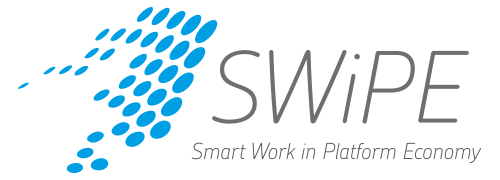It’s a Friday afternoon in November. I’m sitting in a train from Tampere and the Nordic Working Life Conference towards Turku and home. I’m playing Kuningasidea when their lyrics “I’m balanced when I’m unbalanced enough…” (Orig: “Oon balanssis kun mull o sopivasti epätasapainoo…”) have me recall the days’ conversations about the uncertainty of working life and precariousness.

At least talk about change doesn’t change
For the whole of my academic contract to contract -career rhetorical worry over the growth of uncommon employment and increasing uncertainty in working life has gone from strength to strength. The theme is familiar to me from my student days. In 1994, I wrote my pro-seminar paper on strategies for flexibility in labour policy. That work was published in “Manifestations of Crisis in the Salaried Employment Society and Proposed Solutions” (orig: Palkkatyöyhteiskunnan kriisin ilmenemismuotoja ja niiden ratkaisuehdotuksia) (Leimu & Marttinen 1996). In those days, the salaried employment society was mired in the aftereffects of the depression of the early 1990’s. Our theoretical basis was John Atkinsons Flexible firm model, which in turn was rooted in Thatcherism and age of structural change in the UK – the 1980’s.
Talk about change doesn’t change it seems, but has it any purpose? At the conference, Anna-Maija Lehto from the Finnish Statistics Service gave an excellent keynote address on statistics on change in working life over the past four decades. 2013 was the most uncertain year for employees.
But then again, employees are today more satisfied with their work than before. Also, there’s been no dramatic change in the number of part time or time-limited working employment contracts in the past decades. Time-limited contracts have for the past twenty years stayed at about 15% while part time work has increased by only four percentage points from 1997 (10.4%) to 2015 (14.6%) (Statistics Finland). Traditional measurements of uncommon employment aren’t showing a significant increase in labour market uncertainty.
Is uncertainty the new normal for the Z-generation?
Work in the platform economy are in general organised in gigs, and are potential sources of uncertainty. It seems that the role of the platform economy will grow in Finland; just as it has abroad. It would be interesting to see if this shift leads to an increase of negatively-perceived uncertainty, as the old-fashioned discourse around the “precariat” would suggest. Or could it be that for the generation now starting their careers uncertainty is the new normal? And that to be in balance they’d need to be unbalanced enough, just as Kuningasidea sings?
As a member of the x-generation I’d still want to underline that uncertain work is easier to tolerate when one is surrounded by structures that function as buffers and insulation. Be that insulation society or family. Indeed, flexibility through a strong safety-net is the idea behind the Danish employment and unemployment flexicurity-model (flexible-security).
Uncertainty is nothing new
Behind all this change talk and scaremongering with uncertainty is the (understandable) tendency by social scientists to recognise something new and revolutionary in each era. In my father’s favourite pop song Olavi Virta sings “only the names change, to cover that nothing really changes; and people stay the same” (Orig: ”nimet muuttuu vain ja niillä peitetään, ettei mikään muutu lain, ihminen säilyy entisellään”) and at times I think whether this is exactly what happens. Gig-work necessitated entrepreneurial attitudes before. History classes and my grandparents’ stories of landless peasants from the turn of the last century spring to mind. 150 years ago landless people formed the largest single proportion of the Finnish population, but until 1906 they were not franchised and outside decision-making in society. For them, livelihoods were based on what, today, would be called gig-work and their safety-nets were effectively non-existent.
Or maybe it is?
The internet, social media and artificial intelligence are all genuinely new spices added to this soup. With them conceptualisations of balance and unbalance as well as of certainty and uncertainty are changing. Will the safety net also be created that way? With these big questions in mind I’d follow results of the SWiPE project. Goodness knows what we’ll find by the time we’re through!
The author Satu Aaltonen is a project researcher at the Entrepreneurship unit at the Turku School of Economic – University of Turku. Read more about Satu and her work here.
